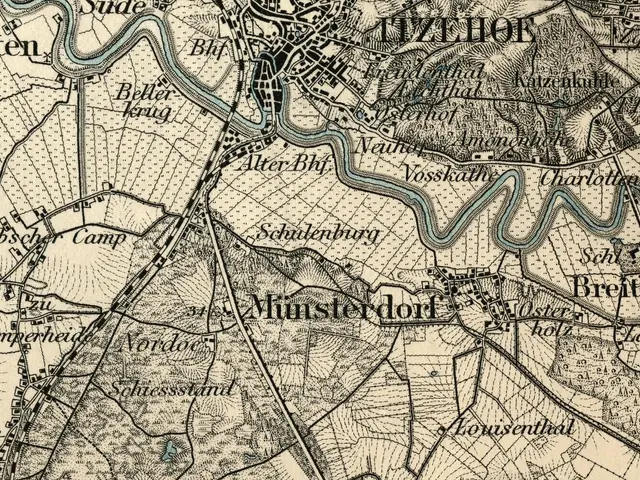Fiery Debate Over Borders and Law Enforcement Erupts in Bundestag
Dobrindt successfully stirs up controversy among AfD, Greens, and The Left parties.
By Johnny Johnson
Politics heated up this week as Interior Minister, Alexander Dobrindt, presented his plans for border control and law enforcement in the Bundestag. His fiery speech left the Greens, Left, and even the AfD riled up.
Kicking off his speech, Dobrindt expressed gratitude towards Germany's security forces. In the wake of Thursday's pro-Palestinian demonstration, where a police officer was severely injured, Dobrindt stated that such incidents were anything but unique [1][2]. He pledged the police "maximum support and backing," a promise the coalition would also deliver in the new police law.
Dobrindt emphasized the need for the police and intelligence services to have a more robust "toolbox" [1]. He wants IP addresses to be stored, data exchange between agencies to be facilitated, and AI to efficiently analyze large quantities of data. The government has accrued too much general suspicion towards these agencies, Dobrindt argued, and it's about time that ends [1]. He advocated against "mandatory labeling, control receipts, and complaint offices."
Border Control Shake-up
The government anticipates a "policy shift," and the changes have already started at the borders. Germany remains "an open country, open to legal migration in our labor market and society" [1]. However, Germany harbors a "limit to illegal migration," and thus action must be taken.
Addressing the SPD, Dobrindt acknowledged that this might be a further step for them [1]. In a gesture of solidarity, he extended a hand for close cooperation.
Dobrindt also had a few choice words for the AfD and Greens. Rather than critique in his speech, they have been loath to implement necessary measures in the last four years [1]. Dobrindt's pointed remarks drew ire from both the Greens and AfD, illustrating the rift in the Bundestag.
The Burning Point
A contentious clause in Dobrindt's speech targeted the Greens and Left, promising a permanent deportation detention for deportable dangerous individuals and serious criminals. The prospects of such a policy left these parties visibly upset, with Konstantin von Notz accusing Dobrindt of causing chaos and overburdening the federal police [1].
Meanwhile, the AfD believed the policy was insufficient, with AfD MP Gottfried Curio accusing the federal government of chaos [2]. Curio argued the government refused to end illegal migration but only seek to push it back, engaging in one label switch after another [2].
NSDAP Allegations
Critics claimed Dobrindt's rejections at the border mirrored the policies of the NSDAP [3]. However, migration law expert Daniel Thym of the University of Constance clarified to "Legal Tribune Online" that such accusations are unwarranted [3]. According to European law, Germany is bound to ensure that neighboring countries accept the rejected asylum seekers [3].
The Future of Border Controls
It remains uncertain how long the border controls will persist at their current intensity. The coalition agreement mandates the continuation of border controls until a functional external border protection is ensured by the EU or the states on the EU's external border, and until the regulations of the Common European Asylum System come into force [1]. Dobrindt plans to sharpen and hasten the implementation of GEAS [1]. Currently, the system is slated for implementation in summer 2026 [1].
Key Players
- Alexander Dobrindt
- German Bundestag
- Migration
- Immigration
- Alliance 90/The Greens
- SPD
- The Left
- AfD
- CSU
- EU border protection
- Refoulements at borders
- Border controls
Enrichment
- The new government aims to increase rejections of undocumented asylum seekers at the border, with exceptions for vulnerable individuals, as part of efforts to align with EU law, which requires asylum applications to be made in the first EU country entered [2][4].
- The government is embracing technology to bolster border surveillance and control, demonstrating a commitment to protecting borders [3].
- Specific details on detention policies for dangerous individuals are not outlined in available sources [1].
- The employment policy in EC countries could benefit from a stronger focus on border control and law enforcement, following the heated debates in the Bundestag.
- As the war-and-conflicts and general-news spheres often intersect with politics and policy-and-legislation, it's crucial for employment policies in EC countries to be updated to effectively deal with influxes of migrants and refugees.
- In the aftermath of the Bundestag's debate, it's essential for employment policies in EC countries to address the need for efficient data analysis to combat crime-and-justice issues, especially in border control and law enforcement.
- To ensure effective border control, employment policies in EC countries must account for the potential risks associated with car-accidents and fires, as these incidents can impact border security and law enforcement personnel.








